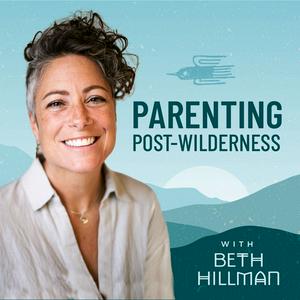139. How to Help Your Anxious Teen or Young Adult With Monica Crnogorac
🌱 LIVE Online Workshop 'Resolve The Cycle of Conflict' 🌱May 2nd & 16th, 2025 Sign up or learn more over at www.bethhillmancoaching.com/conflictworkshopI hope to see you there!If your teen seems anxious, unmotivated, or constantly overwhelmed, there's often more going on beneath the surface than meets the eye. Teen anxiety is more common and more complex than many parents realize. Life coach for teens Monica Crnogorac brings both personal and professional insight on how to help your anxious teen. Together, we explore how anxiety can show up for our teen or young adult kids, what it feels like from their perspective, and how you, as a parent, can better support your struggling teen through it all.Monica shares her own experience with anxiety, starting from when she was bullied in sixth grade, and showing up again in high school and university. Like so many teens, she didn’t know her symptoms were anxiety, only that she felt overwhelmed, emotionally and physically. Her story is a reminder that what looks like laziness, procrastination, or school refusal may actually be anxiety at work.We also talk about what to do when your teen does open up to you, from how to reflect their language with care, to helping them develop a healthier internal dialogue. As parents, it’s easy to unintentionally dismiss or invalidate our child’s experience, but when we approach with curiosity instead of control, we give our teens the space to feel heard and supported.If your teen is showing signs of anxiety, or if you’re unsure how to talk to them about it, this episode will offer you insight, empathy, and next steps you can take today to help your anxious teen.In this episode on how to help your anxious teen, we cover:What anxiety can look like in teens and young adults, and why it’s often misunderstood;The difference between normal stress and anxiety that needs attention;Internalizing vs. externalizing anxiety;What the cycle of anxiety looks like and how to help your teen break it;What to say when your teen opens up about their struggles;How to encourage emotional regulation without trying to “fix” the problem;And more!Looking for support?🗺️Need help setting healthy boundaries with your teen AND following through? My free guide will help you do so by creating your own Parent Home Plan!🤍Influence lasting change in yourself and your struggling teen with my private coaching or parent group program specifically created for parents of struggling teens.Have a question or need support? You can email me at
[email protected] can support the show by:Leaving a reviewSubscribing to the showAnd remember parents, the change begins with us.🌱 LIVE Online Workshop 'Resolve The Cycle of Conflict' 🌱May 2nd & 16th, 2025 Sign up or learn more over at www.bethhillmancoaching.com/conflictworkshopI hope to see you there!

